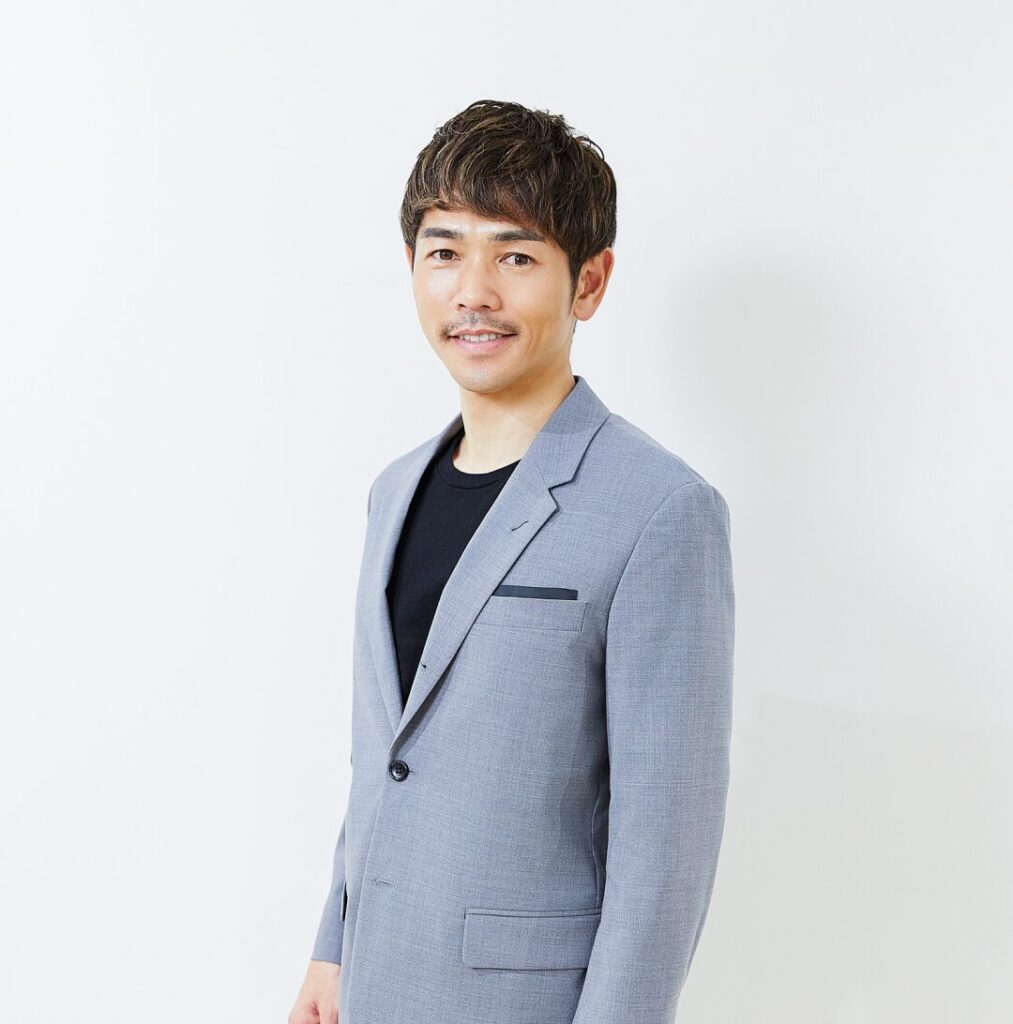[Jockey Keita Tosaki] “I want to ride that horse again and challenge a big race.” Dedicated Health Maintenance Methods for Enhanced Performance Learned from a Serious Injury
2024.09.30
How do professionals, who continue to challenge themselves in various fields such as sports, business, art, and culture, approach their bodies and unleash their potential?
We will ask about the "conditioning*" practiced in their lifestyle.
This time, we interviewed jockey Keita Tosaki about his conditioning methods and daily routine as a jockey.
*Conditioning, as defined by TENTIAL, is the act of optimizing all factors related to one's physical condition to improve life performance.
A Jockey's Daily Routine
── We are very curious about what a jockey's daily routine is like.
I believe it varies among jockeys, but in my case, I perform "seme-uma" (horse training) a few mornings a week. I train three or four horses within about three hours. In the past, when I was at a local racecourse, I would do "seme-uma" with about 15 horses consecutively.
── That's a considerable amount of exercise, isn't it?
That's right. Since weekends are for races, I do a bit of self-training on Mondays. Basic things like a 30-minute jog or core training. It's relaxing and refreshing just doing that.
I also practice meditation, what is known as mindfulness. At first, I sometimes wondered, "What exactly am I doing?", but as I continued, it became truly pleasant.
── In 2019, you suffered a serious injury from a fall at the JBC Ladies' Classic, and although you returned after a long break of about half a year, I heard it was difficult to regain your form.
The injury at that time was quite severe; my nerves were damaged, and I couldn't even grip with my hand. It was certainly tough to continue rehabilitation without knowing if I could truly return, but I kept going day by day, praying with the feeling that "all I can do is what I can do now." However, "continuing" itself wasn't that difficult.
I played baseball from fourth grade until third year of junior high, but I was always a substitute. But somehow, I always felt like I could definitely become a regular (laughs). I even believed I could become a professional baseball player until about my third year of junior high. Because I'm such an optimistic person, I might be unfazed even in situations that others would consider difficult.
── Is that due to a positive personality?
Rather than thinking too much about the future, I believe it's important to "focus on what I'm doing now" and "just keep working steadily."
And then, there's also the bond with the horses. Even while undergoing rehabilitation and feeling "this is tough," there were times I was able to push through with the desire to "ride that horse again and challenge a big race."
── You must have encountered many horses, and each encounter must have had its own story. Riding a horse in front of a large crowd, with cheers and shouts flying around, must be under considerable pressure. How do you maintain your composure?
I'm naturally a very nervous person. Not just in big races, but even in one or two other races, when I enter the gate and the moment the race starts, my heart feels like it's going to burst (laughs).
The opponent is also a living creature, so I don't know what it's thinking, and it's also affected by its mood and physical condition at the time. Recently, I've gradually gotten used to it, and my nervousness has considerably decreased.
── The trust relationship with the horses must have also grown stronger.
That's also true. Even if I make a mistake at the start or things don't go well in a race, that's also part of my current skill, or rather, there's an element of fate. As I've gotten older and learned to accept these things, my perspective seems to have changed a bit.

Practicing Gluten-Free Triggered by Hives
── Mr. Tosaki, how conscious are you of conditioning (health maintenance) in your lifestyle?
The biggest thing is going gluten-free, eliminating wheat. I started that about six or seven years ago.
For the first two years, I used only ingredients without wheat flour, including seasonings and everything else. Because of that, I think my wife had a harder time than I did. Nowadays, I'm not as strict with seasonings, but I generally try to avoid consuming wheat.
── What prompted you to start a gluten-free diet?
At that time, I wasn't feeling very well, and I would occasionally get hives.
When I consulted my trainer about it, I was recommended to go gluten-free, based on the idea that "my intestinal activity was probably weakening."
Since I wasn't eating anything that contained wheat, I avoided bread, noodles, fried foods, etc. In fact, soy sauce usually contains wheat, so I switched to alternatives that didn't contain it.
We jockeys have to stay in a dormitory before races, and even then, I would bring my own seasonings or go to the kitchen staff and ask, "Could you please not use wheat?"
── Was it effective?
The biggest thing was that I no longer felt sleepy during the day.
I used to often get sleepy and doze off when riding in the passenger seat of a car, or feel sluggish around lunchtime, but all of that disappeared completely. I consistently felt clear and refreshed. That truly made me happy.
── You are still continuing with gluten-free, aren't you?
Yes. Apparently, the impact of going gluten-free is so significant that it can even change a person's personality. I certainly feel that I get irritated less often.
However, I love ramen, so... sometimes I treat myself to it (laughs). After all, delicious foods like pasta, pizza, sandwiches, and tonkatsu usually contain wheat.
I Am also Particular about Supplements

── It might be better to have slightly more relaxed rules for stress relief. Are there any other things you pay attention to in your diet?
I also try to supplement important nutrients for the body, such as proteins, minerals, and vitamins.
For example, I regularly use "ALBEX Lactic Acid Bacteria Extract Supplement" to increase intestinal bacteria, "Myprotein Creatine," which I recently started taking to prevent summer fatigue, and "Lypo-C Vitamin C+D" as a vitamin supplement. For salt, I use natural salt rich in minerals, and for protein, "New Science Hemp Protein."
I also frequently use "Hihatsu," a spice said to raise basal body temperature, and "turmeric," which is believed to boost immunity. I learned about these from my trainer, and through trial and error, I've settled on what works best for me.
── The term "chokatsu" (gut activity) has become popular, and the gut is even referred to as the "second brain." Is it indeed important to maintain gut health?
I believe so. Simply put, the intestinal wall is like a mesh, and if the gut isn't in good condition, that mesh loosens, allowing harmful substances to leak into the body through those gaps. It is said that tightening this mesh-like intestinal wall to prevent harmful substances from leaking into the body is the secret to good health.
── To maintain your condition and improve performance the next day, do you prioritize sleep?
Yes, I do. I try to sleep for eight hours a day. However, due to the nature of my job, there are times when I have to wake up at 3 or 4 AM, which means I would have to go to bed by 7 PM.
That's difficult, so I adjust by taking naps during the day. I believe the ideal amount of sleep varies from person to person. Some people might need more, while others are fine with about five hours. I think it's something one has to figure out for themselves.
About TENTIAL

── I heard you wear TENTIAL's "BAKUNE" when sleeping.
Yes. About two years ago, I ordered it after fellow jockeys recommended it to me. I am sure there is a lot of science behind it, but I tend to go by feel, so I am not at all familiar with that side of things (laughs).
But just by wearing it, I could feel firsthand that "this is wonderful." It's incredibly comfortable, light, and feels like I'm not wearing anything.
After that, I also purchased "MIGARU" for everyday wear, and its sizing and fabric texture are also excellent. I truly use it regularly. I also like its simple design and the subtle logo.
I also wear recovery sandals in winter. For bedding, there are also mattresses and pillows, aren't there? I'm interested in that lineup as well, so I plan to check it out.


Jockey Keita Tosaki
Debuted in 1999. He made his presence felt from his early career, and in 2008, he marked 306 wins, securing his first national leading jockey title in local racing. In 2011, he won the Yasuda Kinen, achieving his first JRA G1 victory, and joined the JRA from March 2013. In 2019, he achieved his 1,000th JRA career win. He is the fourth jockey in history to achieve 1,000 wins in both JRA and NAR.
Contact Us
For inquiries or consultations regarding our products, services, or media, please contact us here.


![[Model Rena Takeshita] “Quitting my job was not an option.” How I balance modeling and childcare without pushing myself too hard](https://corp.tential.jp/wp-content/uploads/2024/03/takeshita_fv2-1-1.jpg)

![[Professional Baseball Player Tsuyoshi Wada] Secrets to Maintaining Health for the Longest Active Record](https://corp.tential.jp/wp-content/uploads/2024/02/231208_tential49607-2.jpg)

![[Former professional baseball player Hirokazu Ibata] “Sleep” creates good performance! Sleep environment creation that I was particular about since I was an active player](https://corp.tential.jp/wp-content/uploads/2024/05/①_TYT7107_TOP.jpg)
![[Actress Umika Kawashima] Gut health, warming activities, and moderate exercise. “Consistency” in small things leads to results](https://corp.tential.jp/wp-content/uploads/2024/08/OGP_本番_川島海荷_1200×630-3.jpg)
![[Actor Rosa Kato] Because the Whole Family is Busy, those Rare Meals We Share around the Table Mean the Most](https://corp.tential.jp/wp-content/uploads/2025/03/FV加藤ローサ_本番4402-3.jpg)
![[Female Shogi Player Manao Kagawa] “Shogi is an Endless Marathon” – What You Can Do Now for Conditioning](https://corp.tential.jp/wp-content/uploads/2025/03/OGP_香川愛生_本番_1200×630.jpg)
![[Free Announcer Reina Sumi] Struggling with Childcare for the First Time! “What I Need most Right Now is Sleep.”](https://corp.tential.jp/wp-content/uploads/2024/12/FV鷲見玲奈あたり_064.jpg)
![[Para Alpine Skier Momoka Muraoka] Harsh winter competition. Daily routines that maintain performance even during exhausting tours](https://corp.tential.jp/wp-content/uploads/2024/11/FV_村岡桃佳_本番_2160×1008.jpg)
![[Artist Yuta Okuda] Sleep is the most important thing! What are his unique conditioning techniques for maintaining performance?](https://corp.tential.jp/wp-content/uploads/2024/10/FV_奥田雄太_本番_2160×1008-1.jpg)